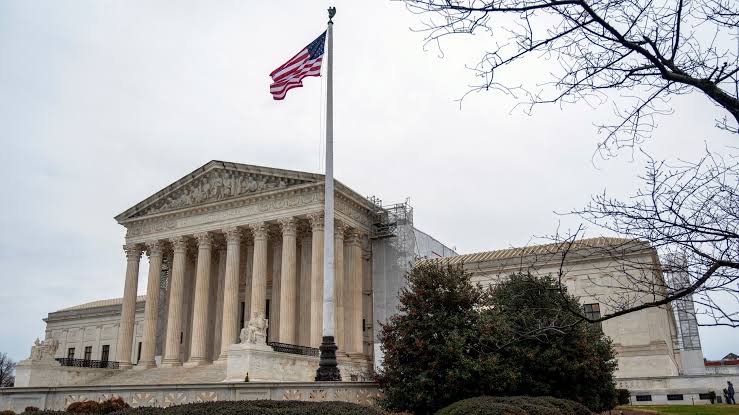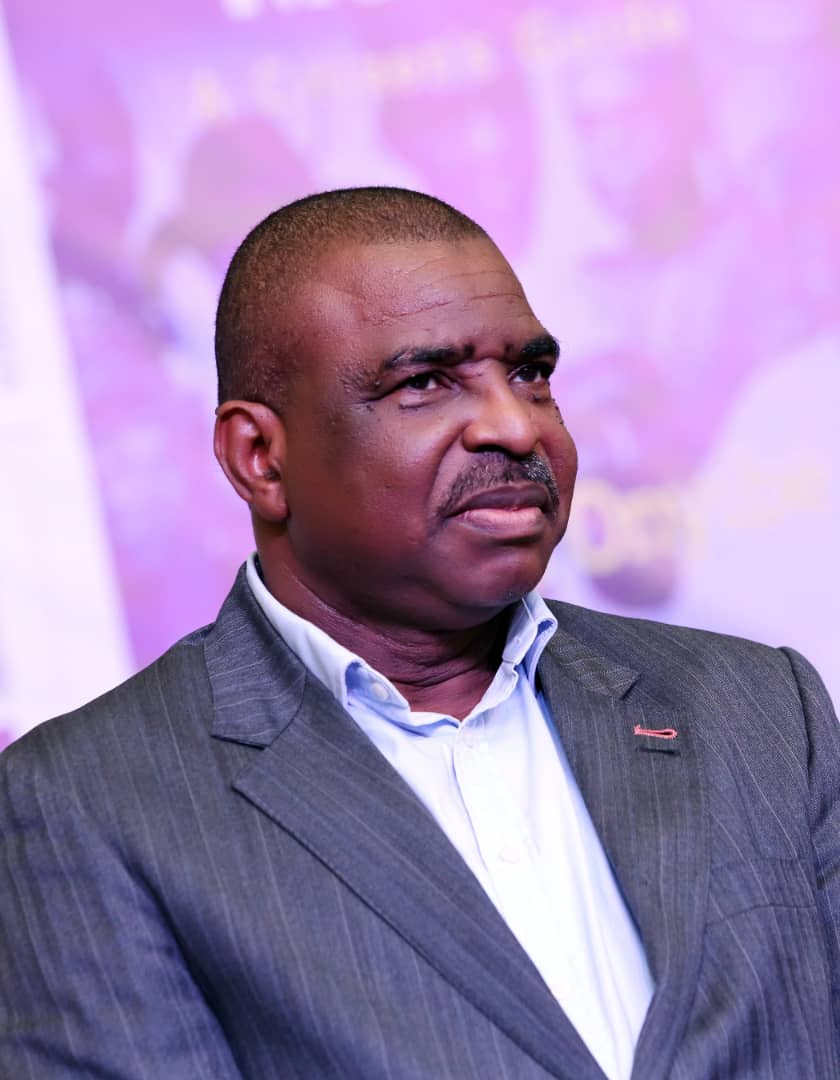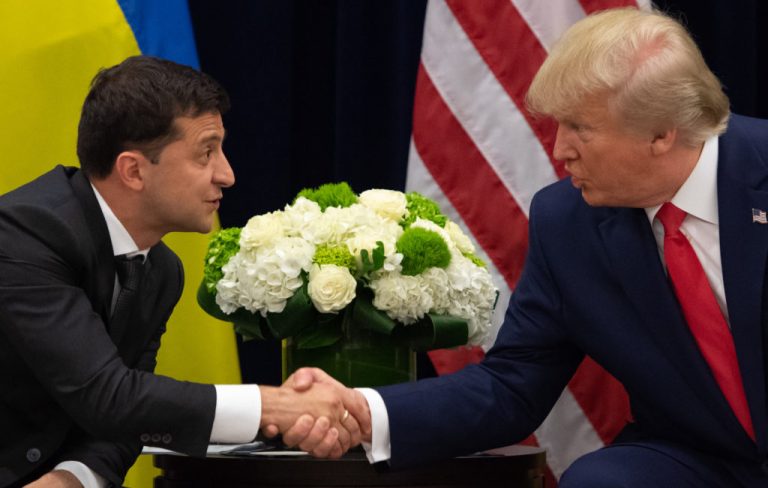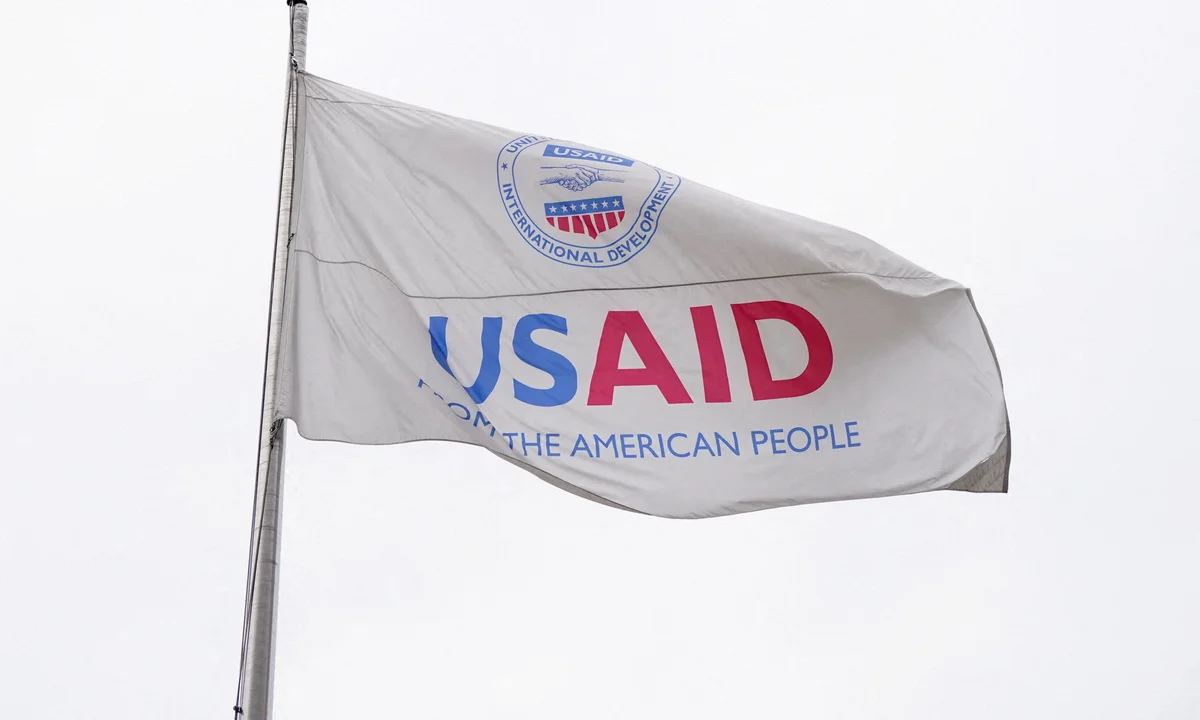During his visit to the White House on Friday, February 28, Ukrainian President Volodymyr Zelensky faced a tough reception from President Donald J. Trump and Vice President J.D. Vance. Their handling of him demonstrated their firm approach to diplomacy, signaling a shift in global power dynamics.
As the saying goes, a beggar has no choice—their hand is always beneath that of the giver, not above it. This principle was clearly reinforced when President Trump made it explicit that Ukraine had little say in negotiations regarding the resolution of the ongoing three-year war with Russia. Initial discussions had already taken place in Saudi Arabia without Ukraine or European nations at the table. Instead, the negotiations involved Saudi Arabia, the U.S., and Russia.
In response, Zelensky expressed his frustration:
“It feels like the U.S. is now discussing the ultimatum that Putin set at the start of the full-scale war. Once again, decisions about Ukraine are being made without Ukraine. I wonder why they believe Ukraine would accept all these ultimatums now if we refused them at the most difficult moment.”
Similarly, UK Prime Minister Keir Starmer voiced concerns over Trump and Vance’s strategy of excluding Europe from the discussions:
“Nobody wants the bloodshed to continue, least of all the Ukrainians. But after everything that they have suffered, after everything they have fought for, there can be no discussion about Ukraine without Ukraine, and the people of Ukraine must have a long-term, secure future.”
However, the reality is that Zelensky is in no position to dictate terms. This was emphasized when Vice President Vance rebuked him during the Oval Office meeting:
“Mr. President, with respect, I think it’s disrespectful for you to come into the Oval Office to try to litigate this in front of the American media.”
Trump had long accused Zelensky of being a shrewd negotiator who, during Biden’s presidency, would visit Washington and leave with massive financial aid. Determined to change this dynamic, Trump made it clear that such a practice would not continue under his administration. Summarizing the meeting, he stated:
“We had a very meaningful meeting in the White House today. Much was learned that could never be understood without conversation under such fire and pressure. It’s amazing what comes out through emotion, and I have determined that President Zelensky is not ready for peace if America is involved because he feels our involvement gives him a big advantage in negotiations. I don’t want advantage, I want PEACE.”
Trump went further, saying:
“He disrespected the United States of America in its cherished Oval Office. He can come back when he is ready for peace.”
By securing a deal that would grant the U.S. control over some of Ukraine’s rare earth resources as repayment for previous military aid, Trump demonstrated his negotiation skills. This approach mirrors historical precedents, such as Kuwait compensating the U.S. with oil after being liberated from Iraq in 1990 and Europe repaying America for the post-World War II Marshall Plan by allowing the formation of NATO under U.S. leadership.
The war itself stems from Ukraine’s desire to join NATO, which Russia perceived as a threat, prompting the invasion. Biden’s administration rallied U.S. allies to support Ukraine, possibly influenced by Biden’s personal connections—especially considering that Zelensky previously shielded Biden’s son, Hunter, from scrutiny over alleged financial misconduct in Ukraine. This decision may have played a role in Biden’s election victory in 2020, sparing him political damage from Trump’s opposition research.
However, Zelensky’s alignment with one side of U.S. politics carried risks. Hunter Biden’s business dealings eventually came under investigation, leading to his conviction, though his father pardoned him before leaving office. Some speculate that Biden’s support for Ukraine was a way of repaying Zelensky, providing him with financial and military backing against Russia.
This led Ukraine into a protracted war, with devastating consequences. Europe, drawn into the conflict through NATO, has suffered economic strain due to sanctions on Russian energy, with Germany experiencing economic downturns and the UK entering a recession. Africa has also been affected, as food shortages have worsened due to disruptions in wheat exports from Ukraine and Russia.
Had former President Barack Obama acted in 2014 when Russia annexed Crimea, this war might have been avoided. However, Obama, who prioritized ending wars rather than starting them, resisted calls for military action, despite pressure from figures like then-Secretary of State Hillary Clinton. Ironically, Biden, who was Obama’s vice president at the time, later led Ukraine into a war that his former boss had deliberately avoided.
With around 400,000 Ukrainians killed or wounded and much of the country’s infrastructure in ruins, the war has proven catastrophic. As Trump attempts to broker peace, it remains uncertain whether Zelensky will adapt to the new realities of U.S. foreign policy. Unlike the previous administration, Trump and Vance do not view Ukraine as a victim but as a country that must make concessions to secure peace.
Trump has already played a key role in de-escalating the Gaza conflict, and a similar approach could be applied to Ukraine. However, for this to happen, Zelensky must recognize that the geopolitical landscape has shifted and that the U.S. will no longer provide unconditional support. If Ukraine truly seeks peace, its leadership must engage with the new administration on its own terms.
The cold reception President Trump gave to Ukrainian President Volodymyr Zelensky was evident when he labeled him a dictator and accused him of starting the war—though he later jokingly retracted the statement, expressing disbelief that he had said it. This exchange took place in response to reporters’ questions on the matter.
Trump’s firm stance signaled a shift from past U.S. support, and Zelensky might have adjusted his approach accordingly, handling the new White House administration with more caution. However, he chose a more assertive approach and was met with strong pushback from Trump and Vice President J.D. Vance. The two leaders discarded diplomatic formalities and sternly reprimanded Zelensky for what they perceived as arrogance regarding global security and an attempt to exploit perceived U.S. vulnerabilities—something they were unwilling to tolerate.
Through their bold policies, which are reshaping international relations, Trump and Vance are clearly dismantling the old world order and crafting a new one. This is evident in Trump’s imposition of steep tariffs on U.S. trading partners, a move that is redefining alliances worldwide. Simultaneously, he is pushing for a swift resolution to conflicts in Gaza and Ukraine—wars he insists would never have started under his leadership. Despite domestic political challenges, Trump has vowed to bring these conflicts to an end.
For the sake of a more comprehensive global peace effort, it would be worthwhile for Trump to extend his focus to ending conflicts in Africa, particularly in the Democratic Republic of Congo and Sudan. These regions hold vast reserves of critical resources—Congo with its cobalt and Sudan with its oil—both vital for sustaining global energy production and technological advancement.
Even before formally taking office, Trump’s aggressive rhetoric influenced global events. His warning that chaos would erupt if Hamas refused to negotiate a ceasefire prompted a temporary truce between Hamas and the Israeli Defense Forces (IDF). A pattern of strategic pressure appears to be emerging. After Trump excluded Europe from negotiations on ending the Russia-Ukraine war, French President Emmanuel Macron, a longtime acquaintance of Trump, was among the first European leaders to visit him in Washington, seeking clarity on France’s position in the shifting geopolitical landscape. German Chancellor Olaf Scholz and British Prime Minister Keir Starmer soon followed, with Zelensky arriving thereafter.
Notably, Scholz maintained Germany’s trademark direct and pragmatic approach during his White House visit. Macron, having built a rapport with Trump during his previous presidency, engaged in lighthearted banter, reflecting the French leader’s personable style. Starmer, adhering to Britain’s tradition of diplomatic finesse, presented Trump with a letter from King Charles III, inviting him for a state visit—an overture that reportedly charmed the U.S. president. This diplomatic strategy was reminiscent of how North Korean leader Kim Jong Un had won Trump over with personal letters, following initial hostilities.
Unlike these European leaders, who carefully navigated discussions with Trump, Zelensky adopted a confrontational tone, attempting to lecture Trump on why defending Ukraine was also in America’s best interest. He argued that, despite the Atlantic Ocean separating the U.S. from Europe, Russia still posed a threat. However, Trump and Vance found this stance presumptuous and swiftly dismissed his arguments, reminding him that he was in no position to dictate U.S. security policy.
Zelensky’s misstep revealed his lack of diplomatic finesse, likely stemming from his inexperience—having transitioned directly from a comedian satirizing politicians to a wartime president. His extensive international support, largely driven by Western sympathy for Ukraine as the underdog in its struggle against Russia, may have inflated his sense of importance, leading him to expect universal backing. But Trump was not swayed by this sentiment.
The flurry of European leaders visiting Washington underscores Trump’s influence as a dominant global figure. While critics often overlook it, Trump’s approach is rooted in pragmatism and his commitment to his “Make America Great Again” (MAGA) agenda. His numerous executive orders are designed to strengthen the U.S. economy and give it an edge over competitors.
A key aspect of Trump’s legacy-building efforts is tackling the U.S. budget deficit, which currently stands at approximately $36 trillion. He is also seeking to reverse trade imbalances with major partners like China, Mexico, and Canada. One of his unconventional strategies to generate revenue is the significant increase in the EB-5 visa investment threshold—from $1 million to $5 million—offering a direct pathway to U.S. residency for high-net-worth individuals willing to invest in the country.
Similarly, his tariff hikes are aimed at shifting trade dynamics in America’s favor. These strategies are already causing ripples globally, sending shockwaves across markets and international relations. While some argue that Trump’s ambitious goal of attracting 10 million investors through the $5 million EB-5 visa is unrealistic—citing the UK’s modest intake of 1,000 applicants for its similar program—others believe the U.S. will draw significant interest, particularly from wealthy individuals in China, Korea, the Middle East, Russia, and even Britain.
For many affluent foreigners, the opportunity to secure U.S. residency through the “Golden Green Card” is worth the steep price tag. With Trump’s administration pursuing aggressive economic and geopolitical strategies, the global landscape is rapidly evolving—whether the world is ready for it or not.
A provision in the U.S. Constitution, which the new administration attempted to nullify through an executive order, was subsequently suspended by a court ruling.
Many may be surprised to learn that people worldwide already pay amounts equivalent to or even exceeding $5 million to participate in the U.S. citizenship-by-investment program. This is similar to how, in Nigeria, bureaucratic hurdles and corruption sometimes force citizens to pay up to four times the official cost to obtain an international passport. Likewise, visa application fees for certain countries are often inflated by syndicates, as seen in recent allegations against South African High Commission officials accused of visa racketeering.
The current $5 million fee is significantly higher than the original cost when the EB-5 visa program was introduced in 1990. To put this into perspective, the U.S. Congress initially established the EB-5 Program to stimulate the economy through job creation and foreign investment. In 1992, lawmakers expanded the initiative by creating the Immigrant Investor Program, or Regional Center Program, allowing investors to fund projects tied to designated regional centers that promote economic growth. While the program initially required a $1 million investment, this amount increased to $1.8 million in 1992 and has now been raised to $5 million under President Trump in 2025.
Critics who accuse Trump of being overly transactional for increasing the cost of the EB-5 visa may be unaware—or deliberately ignoring—the fact that he is not the first president to revise its pricing.
Following his tense meeting at the White House, Zelensky has shifted his tone, seemingly acknowledging the need for a more conciliatory approach. On Saturday, he issued a statement of appreciation, saying, “America’s help has been vital in helping us survive, and I want to acknowledge that.” He also emphasized the need for open dialogue, stating, “Despite the tough discussions, we remain strategic partners. But we need to be honest and direct with each other to truly understand our shared goals.”
At its core, Zelensky’s visit aimed to secure U.S. security guarantees against future Russian aggression. His skepticism toward any agreement with Moscow is understandable, given that Russia previously invaded Ukraine in 2014, annexing Crimea during President Obama’s tenure. Zelensky does not trust Putin, especially since Russia violated the 2015 peace agreement with Ukraine.
However, his confrontational approach—marked by emotional appeals rather than pragmatic diplomacy—worked against him. As a result, he left the White House empty-handed, failing to secure his key objectives, including a potential deal to trade rare earth minerals in exchange for U.S. military protection.
Zelensky has since sought solace among European leaders, but this offers little real security. Even those comforting him recognize their own vulnerabilities, as they, too, rely on U.S. military support. Despite Europe’s show of solidarity with Ukraine during a recent meeting in London on March 2—where they agreed to form a coalition—it remains clear that Europe cannot effectively defend itself without the United States. This reality, which became evident after World War II and led to NATO’s formation under U.S. leadership, remains unchanged.
Recognizing this, European leaders—including those from France, the UK, Germany, and Italy—have prioritized maintaining strong ties with the U.S., frequently traveling across the Atlantic to engage with President Trump, despite the turbulent state of their current relationship.
Trump has made it clear that he intends to end both the Israel-Hamas and Russia-Ukraine wars, possibly through unconventional means. In a phone conversation with Putin, he reportedly expressed no opposition to Europe deploying a peacekeeping force in Ukraine—a concept that closely resembles Ukraine’s original desire to join NATO, which sparked Russia’s invasion in the first place.
Strangely, this significant development has received little attention, with European leaders instead opting to continue funding Ukraine’s war efforts. The UK, for instance, approved a $2.8 billion loan to Ukraine just last Sunday, despite the reality that Ukraine is unlikely to achieve a decisive military victory, no matter how determined it remains.
Ultimately, the U.S. remains central to resolving these major conflicts in Europe, the Middle East, and Africa. This reality must be acknowledged in any serious discussion about achieving lasting peace in regions where wars have left millions dead or struggling with extreme hunger.








